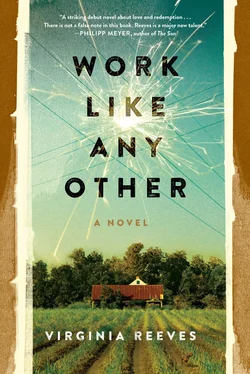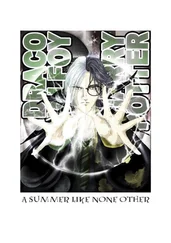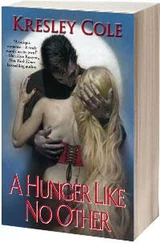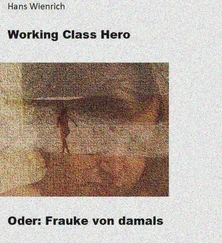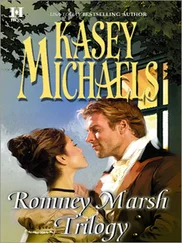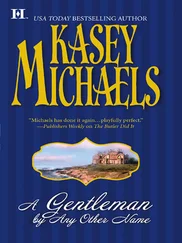“They’re going to paint it yellow,” he tells me. “Highway yellow. They’ve got leftover paint. I asked them to keep it the natural grain. Made it out of maple and oak.”
It only took him six days to build. Ed is a fine woodworker. I’m sure it’s a hell of a chair.
“You get any word about that friend of yours in the mines?” Ed asks.
“Nah.”
“Marie?”
“You know better than to ask.” Ed knows about Marie’s silence, that I haven’t heard from my son. He knows my best guess to Wilson’s whereabouts, that he’s likely been leased to Sloss, sentenced to a dark life underground.
The sun is slanted sideways — winter light. It’s a bit cold, this early in the day. I have always preferred winter to summer, Alabama’s version of the season that is, mild and sun soaked. I have preferred mornings, too, the way they forgive a night’s indiscretions or a yesterday’s. Prison mornings are a different kind, but I cannot say it is an altogether awful thing to be walking across this dusty yard toward a barn where I’ll work my back sore shoveling out stalls, my arms and legs aching from the pails and buckets I carry.
Ed veers toward the shop. “See you at meal. Think you can get me a glass of milk?”
This is the thing I barter — the sweet, creamy milk of Kilby cows. Their milk is too good for us. It’s bottled and sold in Montgomery for profit, but sneaking it is not so different from sneaking electricity. When there’s a surplus, it’s easy to siphon off a bit.
Kilby trades its milk for money, and I trade mine for cigarettes and turned heads. The guards and employees aren’t fed much better than we are, and I act as if I were just delivering what they’re already entitled to when I bring them their milk. No one’s entitled to a bottle of these Guernseys’ milk unless they’re paying royally, though. They’re the best cows in the state.
“I’ll get us some milk,” I tell Ed, as I join the group of men heading toward the barn.
THEdairymen have different jobs, and we rotate through them. One day, I’m mucking stalls, scooping out the straw the moment the heifers soil it. Under the eyes of so many folks, the dairy can’t stand for any contamination — no dirt or manure or any other foulness in the milk we ship off. Other days I’m tending calves, getting them ready for sale, weaning them from their mothers, who bawl as I lead them back to the milking bays. Then there’s the milking. We’re tasked with applying the milking cups, connecting the cup lines to the pail caps, and hanging those pails from leather straps we loop over the cows’ backs. Foreman Bondurant’s proud of those caps on his pails. “Latest invention,” he tells every new man. “Our milk never touches human hands. Only time it comes in contact with the open air’s when you pour it into the storage containers.” Hanging the pails is another precaution, too. The cows can’t kick over a hanging pail, can’t spill that precious liquid out across the hard dirt floor.
As much as I’d hated farming, I don’t so much mind the barn, with its tug and pull of noise, calves mewling and heifers lowing and the soft-piston grunt of the milking machines. There are raking sounds and the pitch of hay and straw, boots in the mud and boots on the hard dirt, the murmurs of men with animals: “Stop your bellowing. It’s all right now. You’re used to this show, old gal. Keep that tail out of my face.” Bondurant walks through calling out orders we already know, and the barn guards keep their feet up on hay bales most of the day. We’ve never had a runner from the dairy. Maybe it’s the animals that keep us here.
The barn makes me think about my father, who had always made it clear that we were not farmers. We had a respectable home on some land. My father made that distinction clear. “Not a farm,” he reminded us, “a respectable home on a bit of land.”
“We are not farmers,” we repeated.
The barn makes me think of my sisters, too, all three of them. Three is not the number Marie knows. She knows me only as the older brother to Catherine, the girl who did as our father wanted — married a coal miner — and stayed in Alabama with that coalman long enough to see our father die. He only got a year with them, but my mother always said it was plenty. “Finally got a mining son,” she loved to say. “It was all he wanted before he went.”
My middle sisters died of pneumonia in late grammar school while our father was away working. He was gone a month that time, and he missed it all. My middle sisters were only ten months apart, and they shared everything, so it was fitting that they went together. When the two started their fierce coughing, my mother sent Catherine and me to the barn to live.
No cows lived in our barn, no pigs or sheep. A few laying hens perched in the coop along the back, but no animals lived inside. We had horses, but they were pastured, and they took their shelter under trees when sun or rain pushed them to hiding. My father allowed these animals to share our land only because their services were so easy and immediate.
“We use our horses for transportation,” my father said. “And a man’s got to have fresh eggs come morning.”
“Yes, sir.”
My father’s barn was dusty with neglect. My sisters and I had grown out of playing there years before, so when Catherine and I found ourselves back among its stalls and loft, we set out in opposite directions to rediscover its corners. I found two dead doves in the hayloft, seven mice, and the remains of what must have been a cat. The doves were freshly dead, their bodies just starting to sink down. A few of the mice were powdered mummies, a few newly felled. The cat was well gone, nothing but a skull and ribs and a few final tufts of hair.
I used a rusted pitchfork to pile the bodies together, the noise of my steps and pitches bringing my sister up the ladder. She came to stand next to the pile, watching as I shook the last mouse on top.
“There’s more of them in the stalls and tack room,” she said.
“Should we sleep up here then?”
She nodded. I believe she was eight, then, and I was about to turn thirteen. I didn’t know my time as a child was almost over, that I’d start working the mines in another year, and do that work until I couldn’t stand a moment more of it.
I imagined our father as a hovering presence, a wisp of himself that arrived in the solid man’s absence. I felt him watching me in the barn with my sister, collecting that pile of animals. He was there as I shoveled them out the hayloft door, onto the ground below, where they scattered and broke, dust and feathers and bone. Our mother brought us bedrolls and we laid them down on the rough boards of the loft, keeping close to each other for fear of the scratching and hoots and calls. Catherine didn’t sleep well the first night, but I told her stories on the second, and she fell asleep in the midst of them. They were recycled stories—“Jack and the Beanstalk” and “The Fox and the Cat,” and later “Cinderella” and “Snow White”—but she credited me their authorship and I didn’t right her assumption. Let her think her brother was one of the Grimms. My father hovered nearby, judging my dishonesty, my stories, my willingness to comfort a small girl.
She’s old enough to get herself to sleep, I could hear him saying.
And now look at you. My father laughs at me in this Kilby barn. Hooking mechanical cups to these damn cows’ teats. That electricity led you straight, now didn’t it? Got you knee-deep in cream and dung, an abandoned wife and child, the death of a man on your shoulders. Straight as an arrow, I tell you.
Just a wisp of him, but it’s loud.
It’d’ve been bad enough if you’d worked your damn wife’s farm, but now you’re working a state farm, no better than the niggers in my shafts.
Читать дальше
